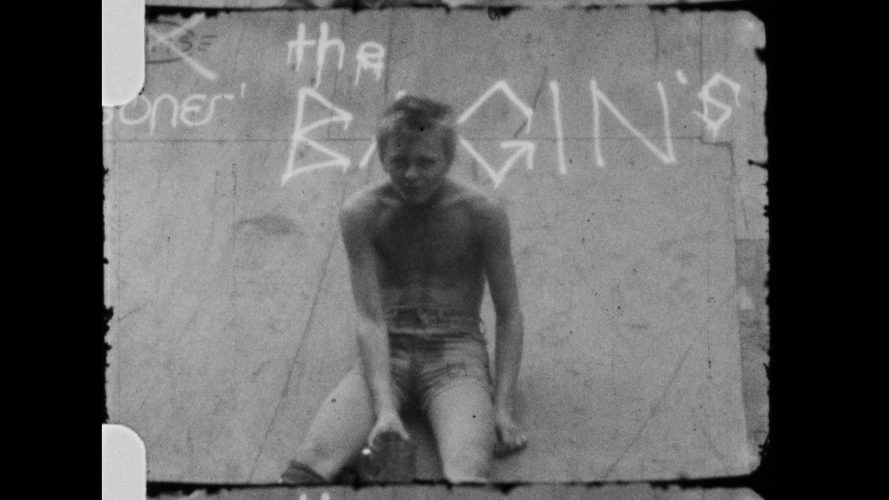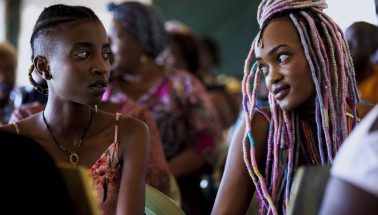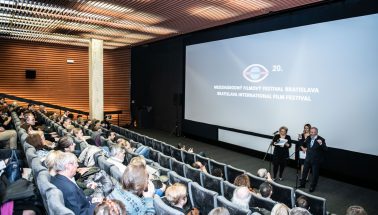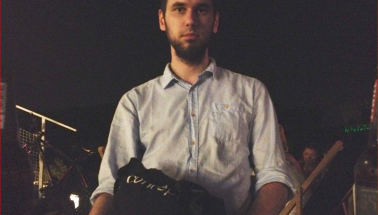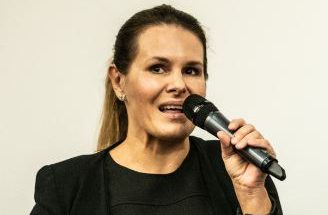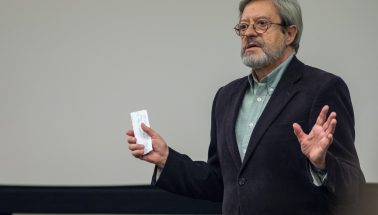“If you’re lucky enough to make living of something you really love, there is a downside – you don’t do it for fun, it’s a job.”
Tomáš Hudák. He studied Film studies (criticism) at the Academy of Performing Arts in Bratislava (VŠMU). He’s a fan of film, music, literature and the art as such. He’s a freelancer, writing film reviews and co-organizing several Slovakian film festivals.
Tomáš, you’re the program manager and coordinator of this year’s MFF Bratislava film festival. What are your competencies, what are people complaining about and what responsibilities do you have?
As a member of the program team, I’m involved in the process of the film selection, so I do get complaints from some discontent viewers. As a program coordinator, I’m in charge of pretty much everything concerning the film program: the communication with other members of the team and management, the licenses for the movies, the logistics and communication with the projectionists to make sure all the films are screened as they’re supposed to.
You created (and co-created) several film sections. It certainly requires some kind of know-how and a dose of courage. What is the key when selecting the movies?
The final film selection is always an intersection of several factors. They are movies that I got chance to watch, movies, that I find interesting in a way, and I think they could be interesting for the viewers in Bratislava as well. The pragmatic factor is that they must be available. And finally, there needs to be a kind of diversity, we don’t want the films to be all the same. We want different audiences to find their films. That’s why we have movies about young people (and for young people), a creative documentary film, socio-political themes, archival films, Czech-Slovak production and something more experimental too.
It’s illustrated mainly with our Lexicon section, where we always want to show various shades of the particular topic, to reveal different point of views, and at the same time, to depict the
How is the process of the selection? Do you think about the festival the whole year? For example, when you’re watching a movie at home, do you make notes about what film you want to screen at festivals that you work for?
I guess it’s always somewhere in the back of my head and when watching movies, I think about how to “make use” of it, if it would fit in the festival, and if it does, in what context. If you’re lucky enough to make living of something you really love, there is a downside – you don’t do it for fun, it’s a job. I make notes only when I know, or I suspect to be writing about the film. But I do write down the films that I watch to not to rely on my memory when searching the movies later.
The film festivals such as MFF Bratislava are not intended for general public. They screen movies that the viewers need to be ready for, not the “standard” multiplex stuff. What expectations do you have from the visitors of this festival – what kind of an audience do you wish for?
The question of the audience is very complex one and every festival deals with it. Typically, the festival has a slightly different audience than multiplexes, although they also screen “art” films and host festivals. Bratislava film festival is certainly based on the film clubs, but it is also trying to reach different audiences. It doesn’t want to be a festival for a specific group of viewers but for everyone – that’s what we try to adapt the program to. My job is not to dictate people what to watch and what to like but to create a dialogue: the audience tells me what sort of films they would like to see, and I’ll do my best to pick the film. However, I also expect the audience to accept the challenge and give a chance to the movies that can go beyond their expectations.
You won’t be disappointed, I’ll ask you the typical cliché question that could inspire the indecisive visitors to watch films, that they shouldn’t miss this year.
Again, it depends on the preferences on what they expect from the film. If you’re open to watch less known stuff, I recommend the Kenyan romance Rafiki. If you’re interested in cinematography and/or gender issues, we got Barefoot in the Kitchen. If you’re interested in contemporary art, we’re screening The End of Fear, there are movies of the specific genre like Cutterhead or Domestik and if you want to see some big production and awarded films, go and see The Old Man & the Gun or At Eternity’s Gate.
Thank you for the interview!
See you in the cinema!
Anna Kačincová Predmerská
